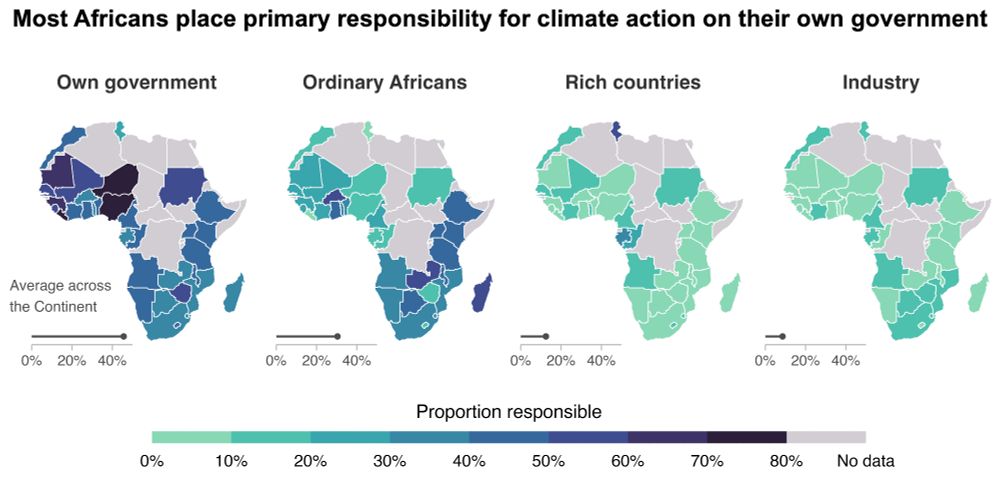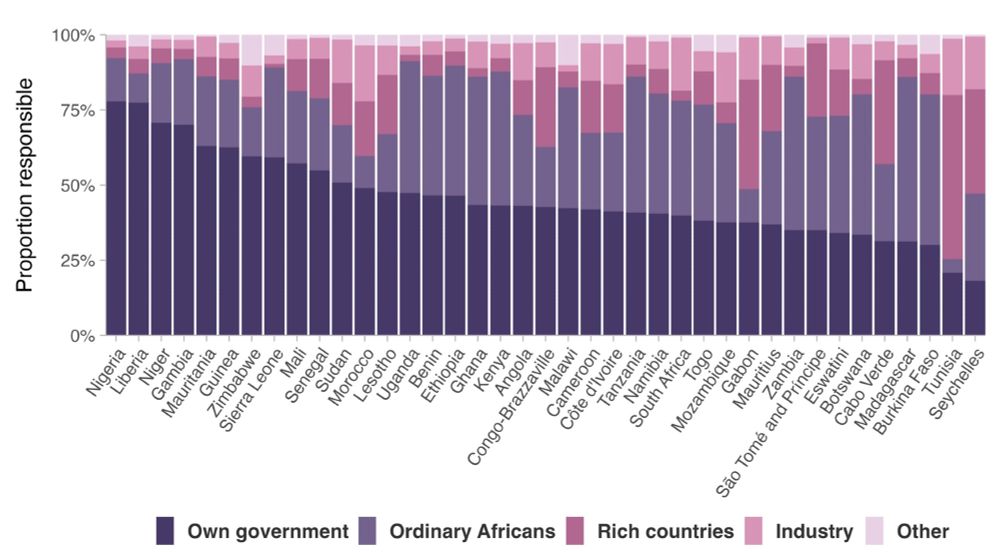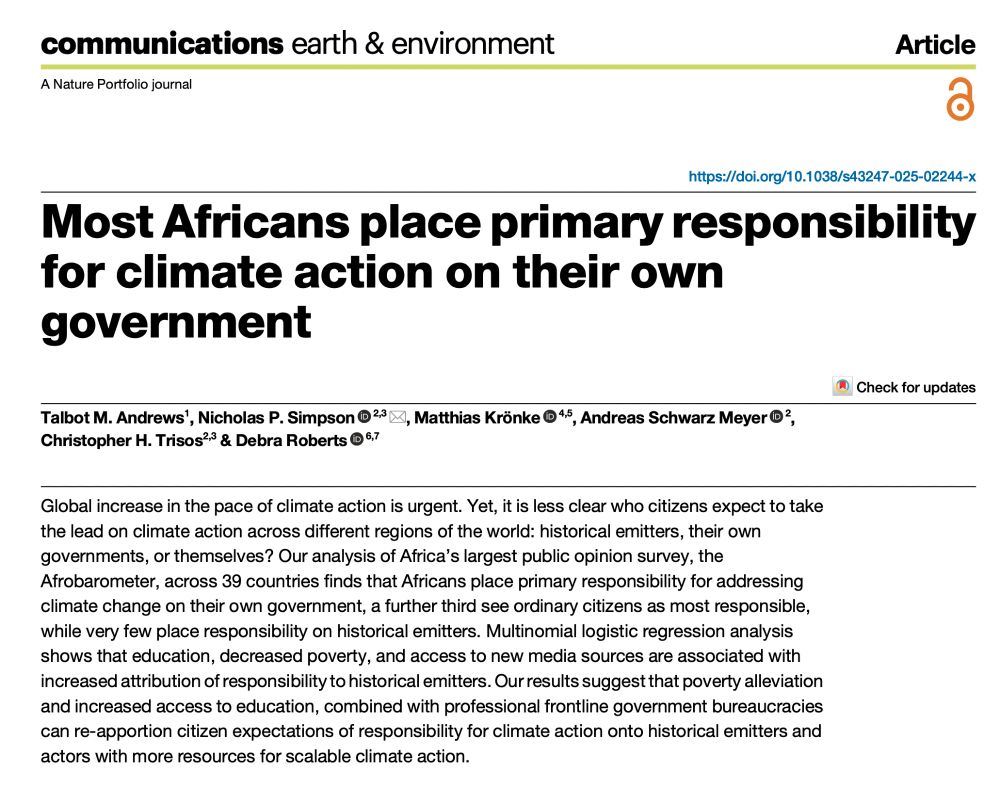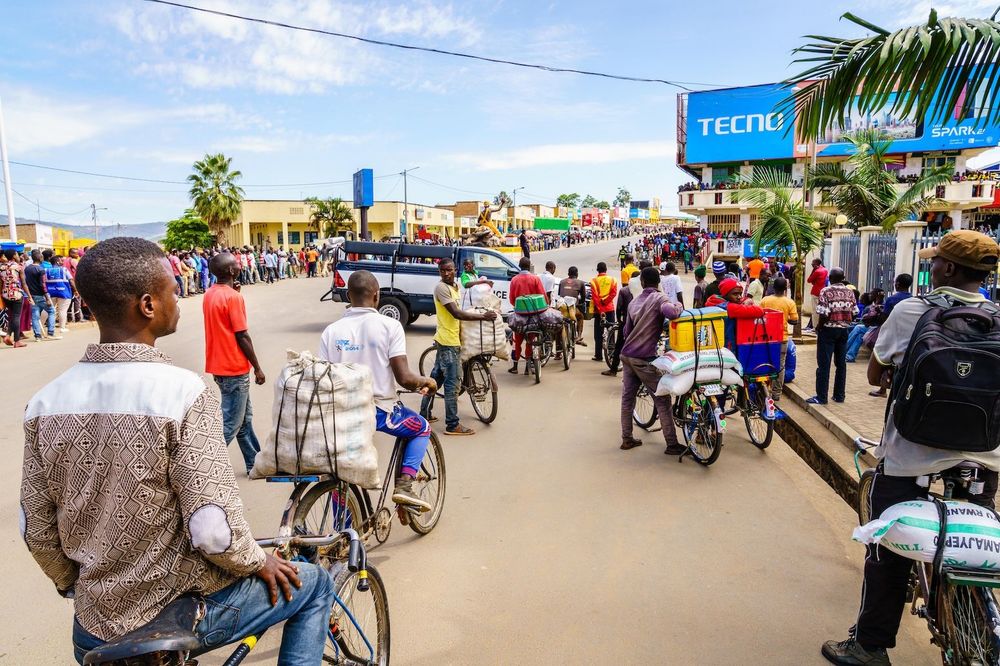Nick Simpson
@nickzimson.bsky.social
1.8K followers
350 following
60 posts
Co-Director at Climate Risk Lab & Chief Research Officer at ACDI (UCT). Climate change and Heritage; Education; Sport; Response Risk; IPCC AR7 Special Report on Cities & WGII
Posts
Media
Videos
Starter Packs
Reposted by Nick Simpson
Nick Simpson
@nickzimson.bsky.social
· Sep 8
Nick Simpson
@nickzimson.bsky.social
· Sep 8
Nick Simpson
@nickzimson.bsky.social
· Sep 8
Nick Simpson
@nickzimson.bsky.social
· Sep 8
Reposted by Nick Simpson
Nick Simpson
@nickzimson.bsky.social
· Sep 2
Complex Climate Risk: Advances and Adaptation Strategies
This podcast focuses on recent advances in complex climate change risk assessment for adaptation and discusses how to better assess and manage the intricate and interconnected risks posed by climate c...
www.podbean.com
Nick Simpson
@nickzimson.bsky.social
· Sep 2

Advances in complex climate change risk assessment for adaptation - npj Climate Action
Recent advances in climate change risk assessment and management and their application across cities, coastal zones, and finance highlight promising opportunities for near-term action to better govern...
doi.org
Nick Simpson
@nickzimson.bsky.social
· Sep 2
Nick Simpson
@nickzimson.bsky.social
· Sep 2
Nick Simpson
@nickzimson.bsky.social
· Sep 2
Nick Simpson
@nickzimson.bsky.social
· Sep 2
Nick Simpson
@nickzimson.bsky.social
· Sep 2
Nick Simpson
@nickzimson.bsky.social
· Sep 2
Nick Simpson
@nickzimson.bsky.social
· Sep 2
Nick Simpson
@nickzimson.bsky.social
· Sep 2
Nick Simpson
@nickzimson.bsky.social
· Jun 14
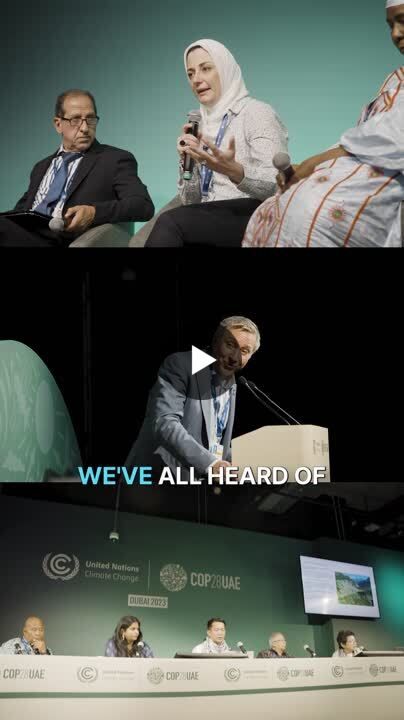
We are proud to announce the release of HACA’s Position Paper, developed by Preserving Legacies in collaboration with heritage professionals and practitioners worldwide. | Preserving Legacies
We are proud to announce the release of HACA’s Position Paper, developed by Preserving Legacies in collaboration with heritage professionals and practitioners worldwide. This paper provides targeted r...
www.linkedin.com
Reposted by Nick Simpson
Arno Kopecky
@arnokopecky.bsky.social
· Jun 5
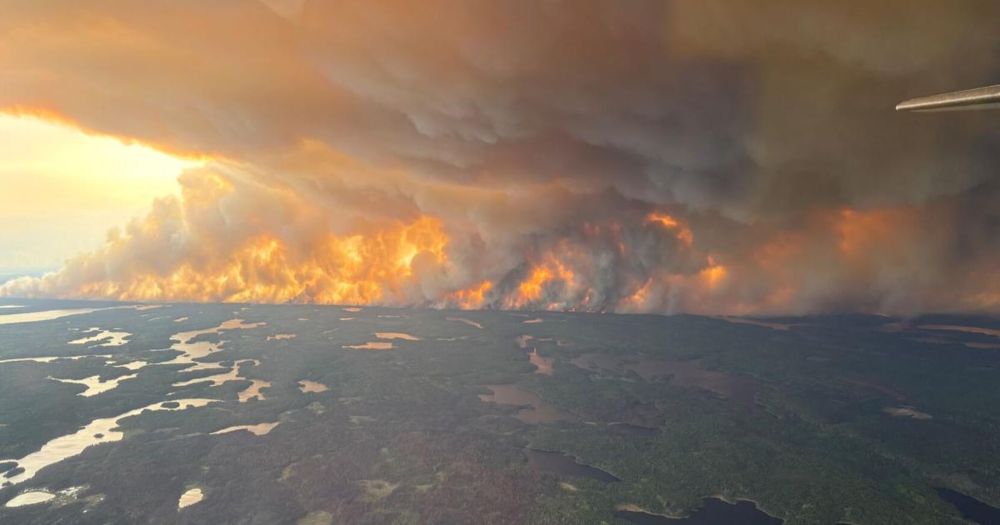
John Vaillant: Mark Carney should understand better than anyone why Canada is burning. Here’s how he can change course.
Many reasons for our intense wildfire season are well-known. Our leaders need to do the math in order to save our economy - and us
www.thestar.com
Reposted by Nick Simpson
Reposted by Nick Simpson
Nick Simpson
@nickzimson.bsky.social
· Apr 5
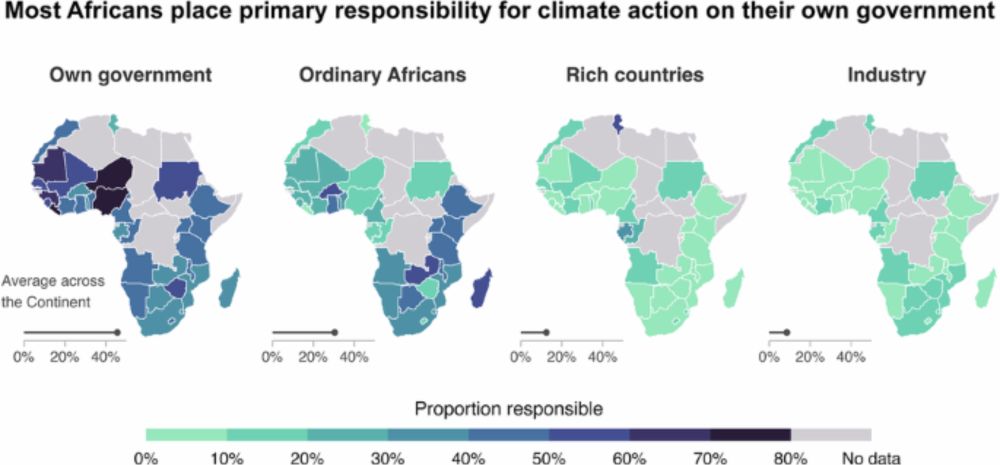
Most Africans place primary responsibility for climate action on their own government - Communications Earth & Environment
About 45 percent of Africans believe their government is responsible for climate change action, and the least responsibility is attributed to countries and businesses with high greenhouse gas emission...
doi.org
Reposted by Nick Simpson








